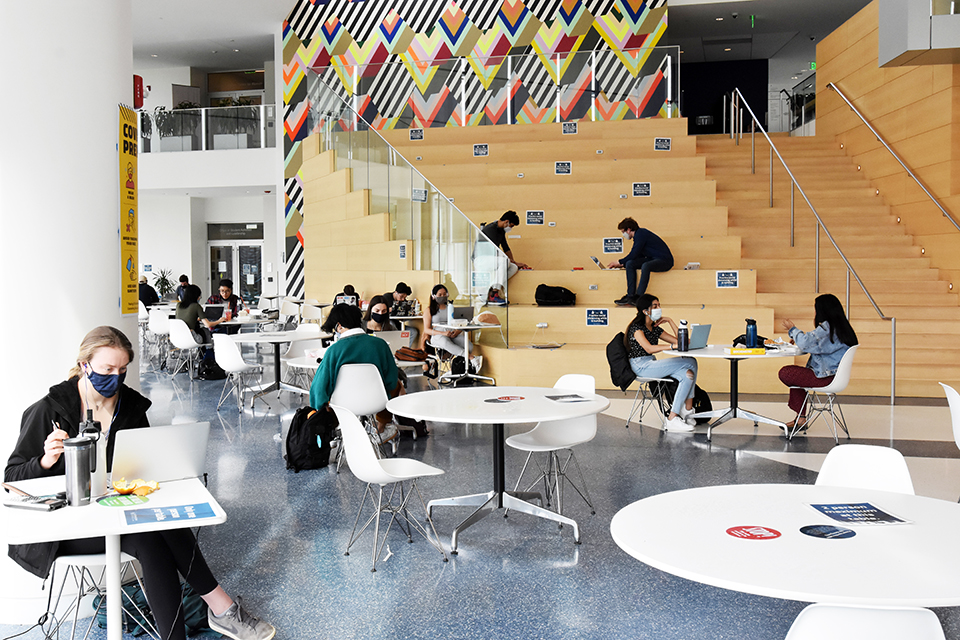lens
Research Shows How Colleges Can Prevent Most Infections
 Students followed health and safety protocols, wearing masks and physically distancing.
Students followed health and safety protocols, wearing masks and physically distancing.
For colleges and universities seeking to promote health and safety while managing costs during the pandemic, researchers have produced a data-driven assessment: Some of the most effective measures are low-cost and already common practices.
Extensive use of physical distancing and mandatory face masks would prevent 87% of campus COVID-19 infections and cost just $170 per infection prevented, according to a study co-authored by a Case Western Reserve researcher and partners from Brigham and Women's, and Massachusetts General hospitals, both affiliates of Harvard Medical School.
If routine testing is added to the mix, 92% to 96% of COVID-19 infections could be prevented at a cost of $2,000 to $17,000 per infection averted, depending on test frequency.
The research was published in Annals of Internal Medicine just before the start of the spring semester to help schools decide what approaches might be most effective.
"Our analysis provides measurable metrics by which the value of physical distancing, mask-wearing policies and testing can be assessed," said Pooyan Kazemian, PhD, co-senior author of the study and an assistant professor of operations at the university's Weatherhead School of Management. The study's lead author is Elena Losina, PhD, the Robert W. Lovett professor of orthopedic surgery at Harvard Medical School.
Researchers examined 24 combinations of four common preventive strategies, and calculated their effectiveness and cost-per-infection prevented.
The team used a computer model to simulate a semester at a college with 5,000 students and 1,000 faculty.
The researchers also modeled online-only education with a campus being closed but with students living off-campus, and found it less effective in preventing infections than keeping the campus open and using masks and distancing.





